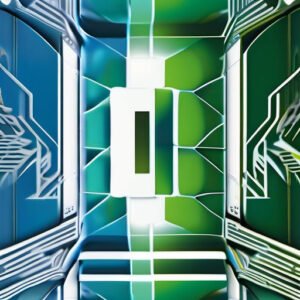Why Quantum Computing Loves Powering 2025’s Smart Cities
Quantum Computing: The Catalyst for Tomorrow’s Smart Cities
The vision of smart cities by 2025 is no longer a distant dream but a rapidly approaching reality. These urban landscapes promise enhanced efficiency, sustainability, and livability by leveraging advanced technologies. At the heart of this revolution lies quantum computing, an extraordinary technology poised to redefine how cities process information and solve complex challenges. Unlike classical computers, quantum computing harnesses the principles of quantum mechanics to perform calculations at unprecedented speeds, empowering smart cities to manage dynamic, large-scale systems with unparalleled intelligence and agility.
How Quantum Computing Powers 2025’s Smart Cities
Smart cities demand solutions that integrate myriad data streams—traffic, energy consumption, public safety, waste management, and more. The capacity of quantum computing to analyze and optimize these variables simultaneously is transforming city governance and infrastructure.
Processing Massive Urban Data at Quantum Speed
Modern cities generate petabytes of data daily. Traditional computing methods struggle to handle this volume and complexity efficiently. Quantum computing offers:
– Exponential processing speed to analyze sensor data in real-time
– Enhanced simulation capabilities for urban planning and environmental impact
– The ability to solve multifactor optimization problems like traffic flow or energy distribution
This enables smart cities to respond dynamically, reducing congestion, improving emergency responses, and maximizing resource allocation.
Improving Sustainability through Quantum-Enhanced Algorithms
Sustainability is a core goal for smart cities, requiring precise monitoring and optimization of energy and resources. Quantum computing can optimize:
– Renewable energy grid integration
– Waste reduction through better logistics
– Water management via predictive analytics
For example, a quantum model can forecast energy demand more accurately, allowing cities to balance loads between solar, wind, and conventional power sources, significantly reducing carbon footprints.
Key Areas Where Quantum Computing Transforms Urban Living
1. Intelligent Traffic Management
Traffic congestion is a persistent urban headache. Quantum computing’s ability to process vast data on road usage patterns, weather, and public transport schedules can:
– Optimize traffic signals dynamically
– Predict and prevent traffic jams before they form
– Assist autonomous vehicle routing with greater efficiency
These advancements lead to smoother commutes, lower emissions, and improved commuter safety.
2. Enhanced Security and Public Safety
Smart cities depend on secure communication and rapid threat detection:
– Quantum encryption provides unbreakable security for critical infrastructure
– Quantum machine learning identifies anomalies in city surveillance and sensors
– Faster processing of emergency calls and resource deployment
Deploying quantum-powered security layers ensures safer urban environments, protecting citizens and infrastructure from cyber threats and physical dangers.
3. Smarter Energy Systems
Energy grids must be resilient and flexible to integrate distributed generation sources. Quantum computing supports:
– Optimized energy storage and distribution strategies
– Real-time balancing of demand and supply
– Advanced materials research for better batteries and solar cells
This optimization drives cost savings and environmental benefits.
Why Quantum Computing Is the Technology Smart Cities Can’t Afford to Ignore
Overcoming Limitations of Classical Computing
Classical systems handle many smart city problems but often hit computational barriers when scaling. Quantum computing overcomes these hurdles by:
– Exploiting qubits’ superposition for parallel computation
– Using quantum entanglement to connect data points in novel ways
– Solving NP-hard problems typical in large-scale urban infrastructure challenges
The result is faster, more accurate decision-making essential for real-time city operations.
The Collaborative Ecosystem Driving Quantum Innovation
Governments, tech companies, and research institutions are actively developing quantum solutions tailored for urban challenges. For instance:
– IBM and Cisco partnering to improve quantum communication networks
– City pilot projects integrating quantum sensors for air quality monitoring
– Academic research on quantum algorithms for public transportation optimization
This collaboration fast-tracks quantum computing’s deployment in smart city initiatives.
Implementing Quantum Computing in Smart Cities: Practical Considerations
Infrastructure Readiness and Investment
Integrating quantum computing requires:
– Upgrading data centers to support quantum hardware and hybrid systems
– Investing in quantum software development and talent
– Ensuring cybersecurity frameworks accommodate quantum-era threats
Municipalities must plan budget allocations strategically to capitalize on early quantum computing advantages.
Bridging the Talent Gap
A skilled workforce is critical. Cities can:
– Foster partnerships with universities offering quantum computing courses
– Support training programs for current IT professionals
– Encourage startups focusing on quantum applications in urban tech
Building local quantum expertise sustains smart city innovation over time.
The Road Ahead: Quantum Computing’s Role in Shaping 2025 and Beyond
Smart cities and quantum computing share a future of exponential growth and mutual reinforcement. As quantum technologies mature, they will unlock new possibilities in urban management, from personalized citizen services to predictive disaster response.
To stay ahead, city planners and tech leaders should:
1. Monitor quantum computing developments continuously
2. Pilot quantum-driven projects in prioritized areas like energy and transport
3. Engage citizens with transparent communication on benefits and data privacy
By embracing quantum computing as a foundational technology, smart cities can become more adaptive, sustainable, and responsive than ever imagined.
Explore in-depth quantum computing research and emerging trends at [IBM Quantum](https://www.ibm.com/quantum-computing/).
Advancing Your Smart City Vision with Quantum Computing
The transformative potential of quantum computing goes beyond theory—it’s a practical tool poised to redefine urban life by 2025. Embracing it early means unlocking smarter resource management, safer communities, and greener ecosystems.
Harness the power of quantum computing and lead your city into a smarter, brighter future.













Post Comment